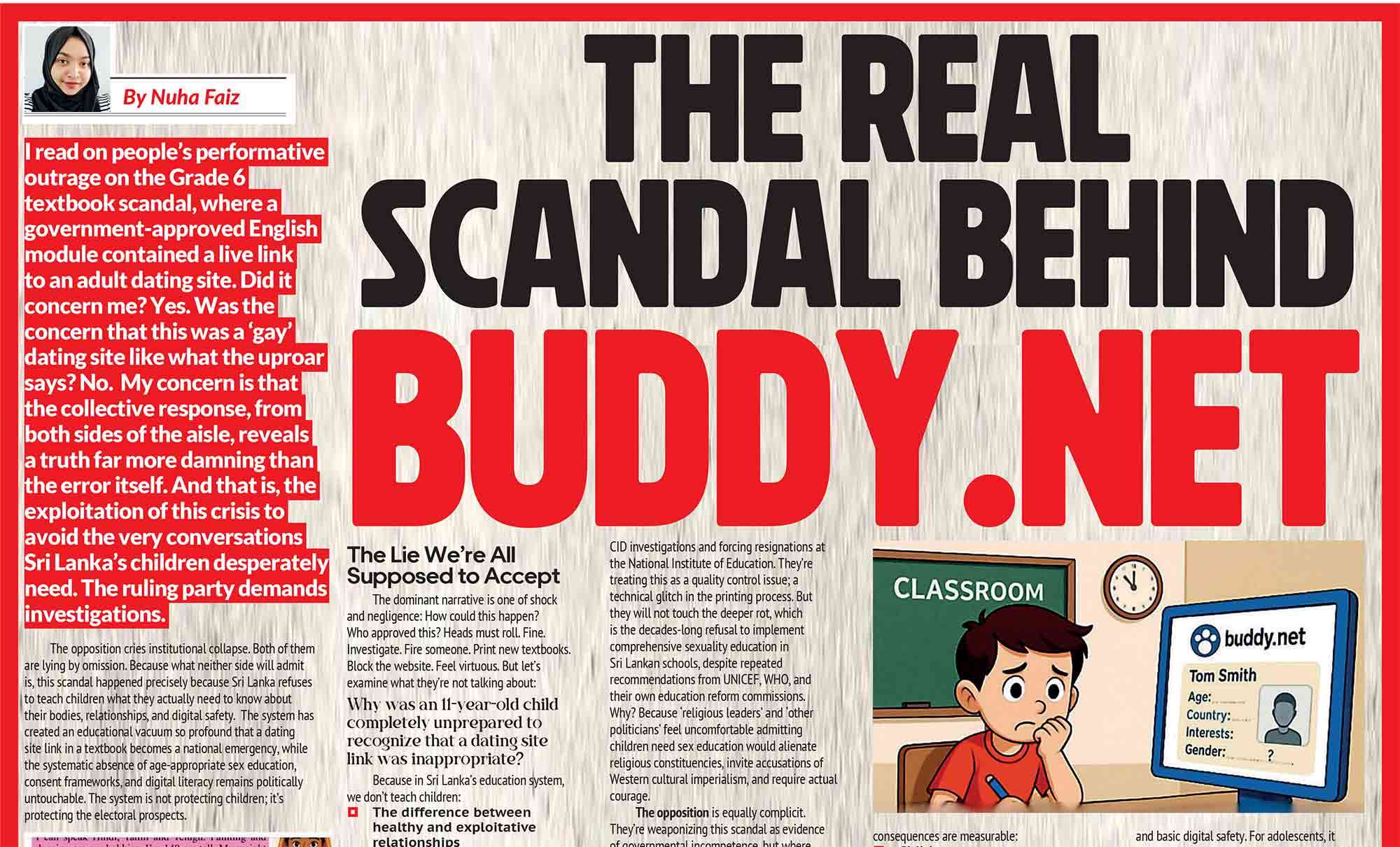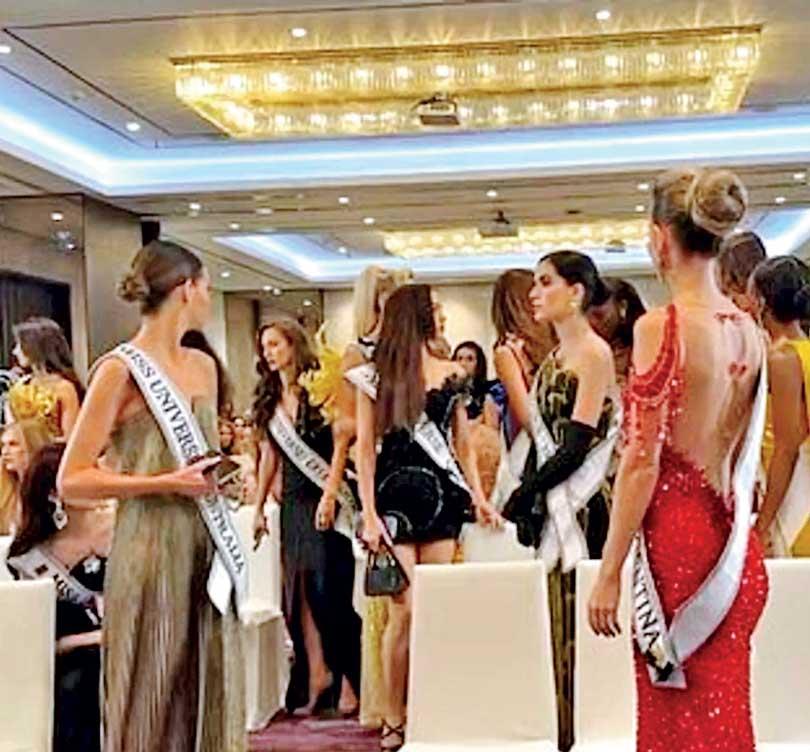

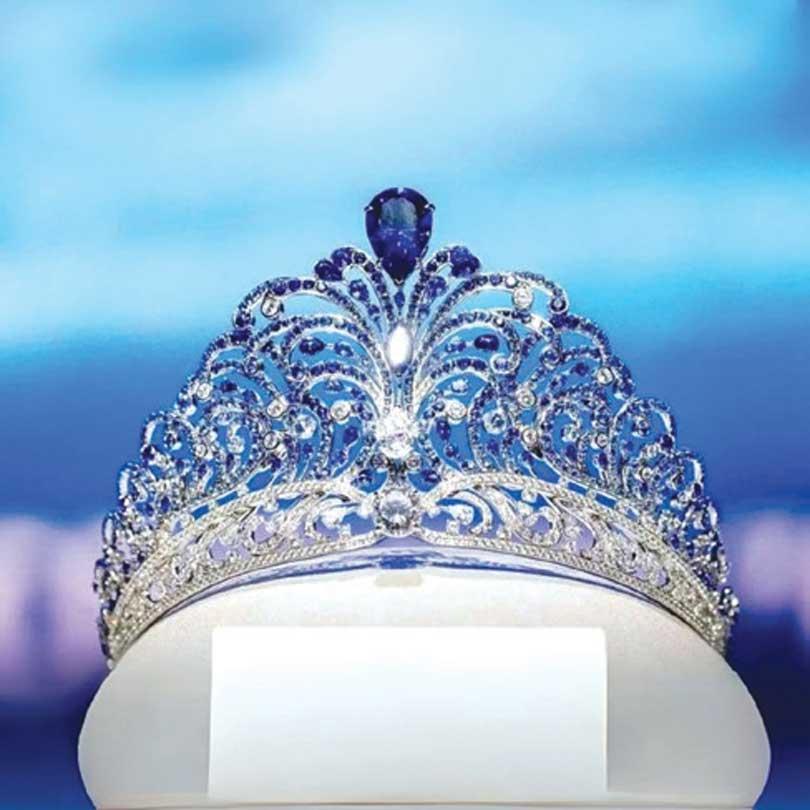
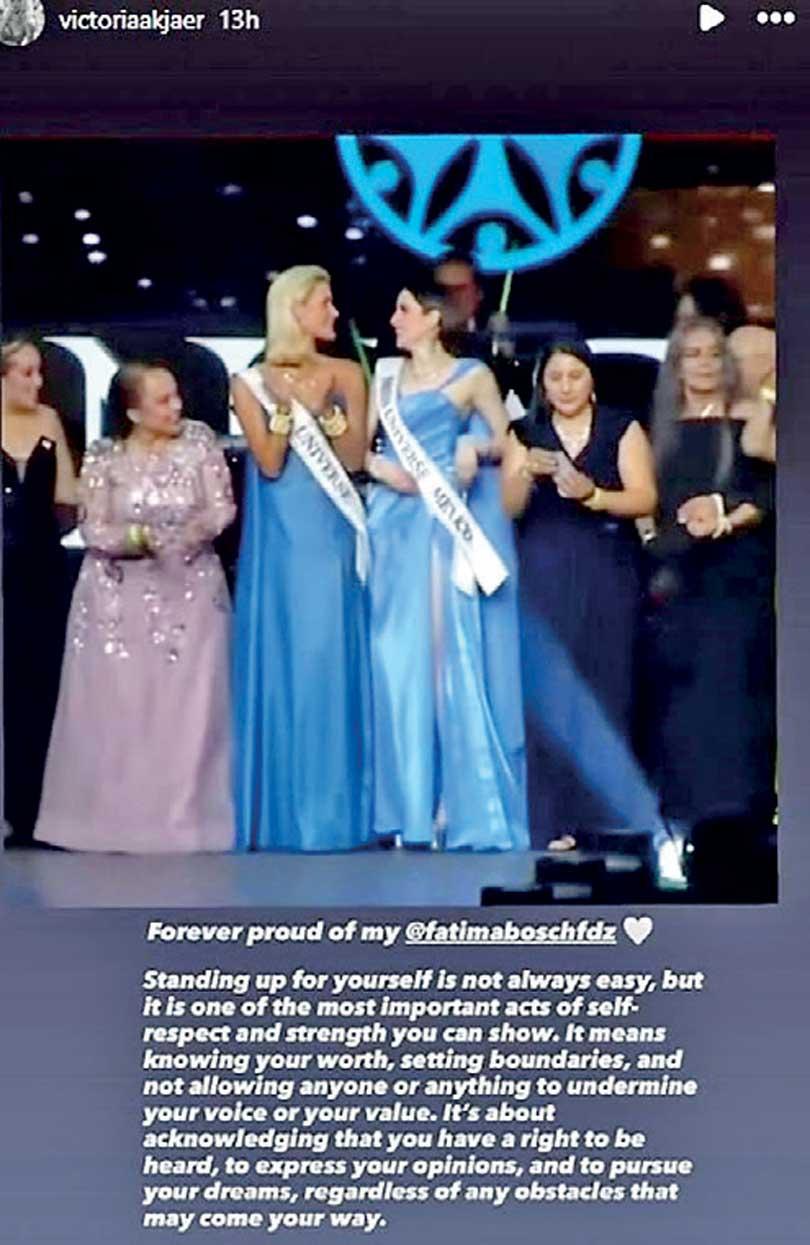
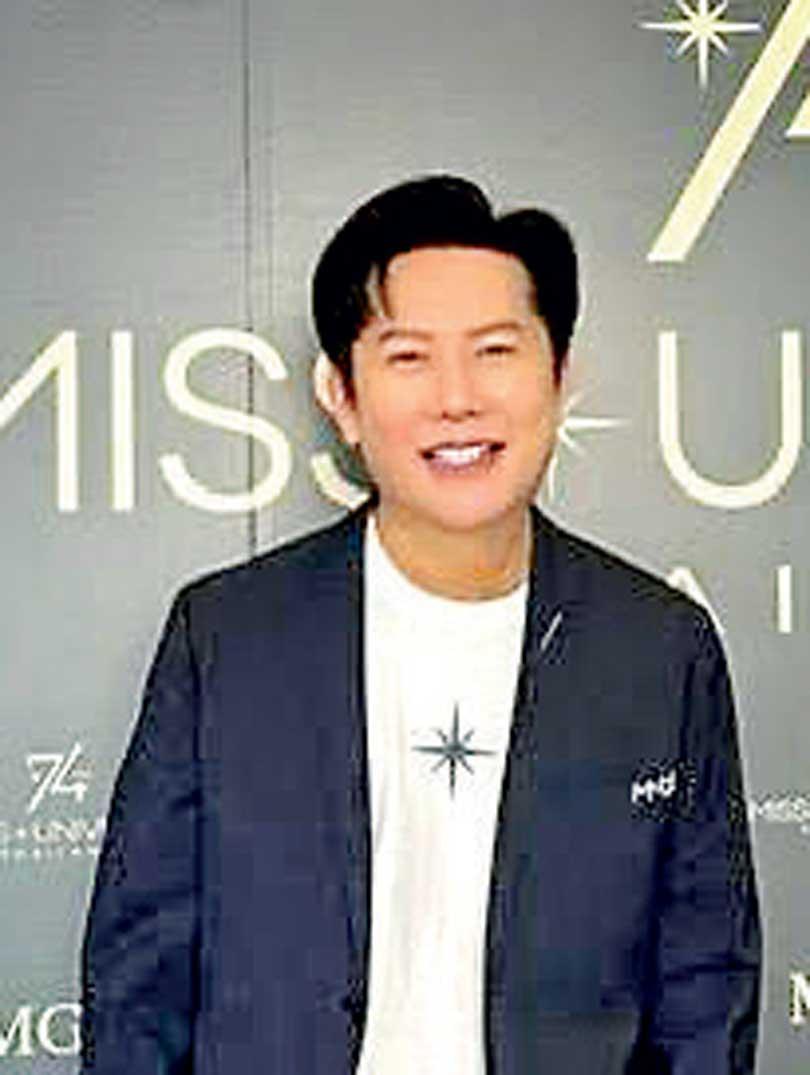
Nawat Itsaragris
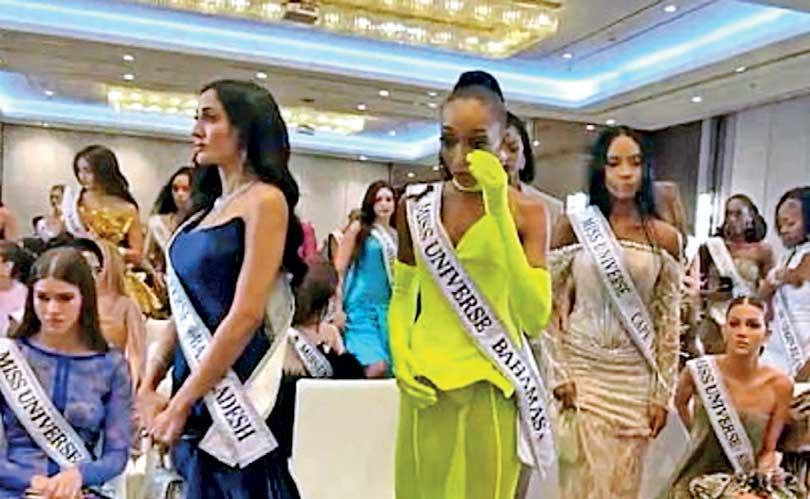
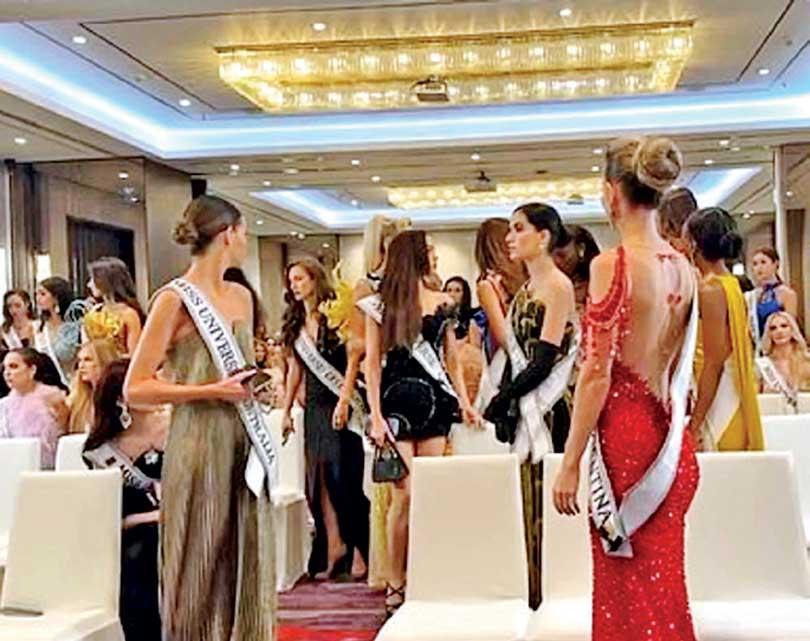
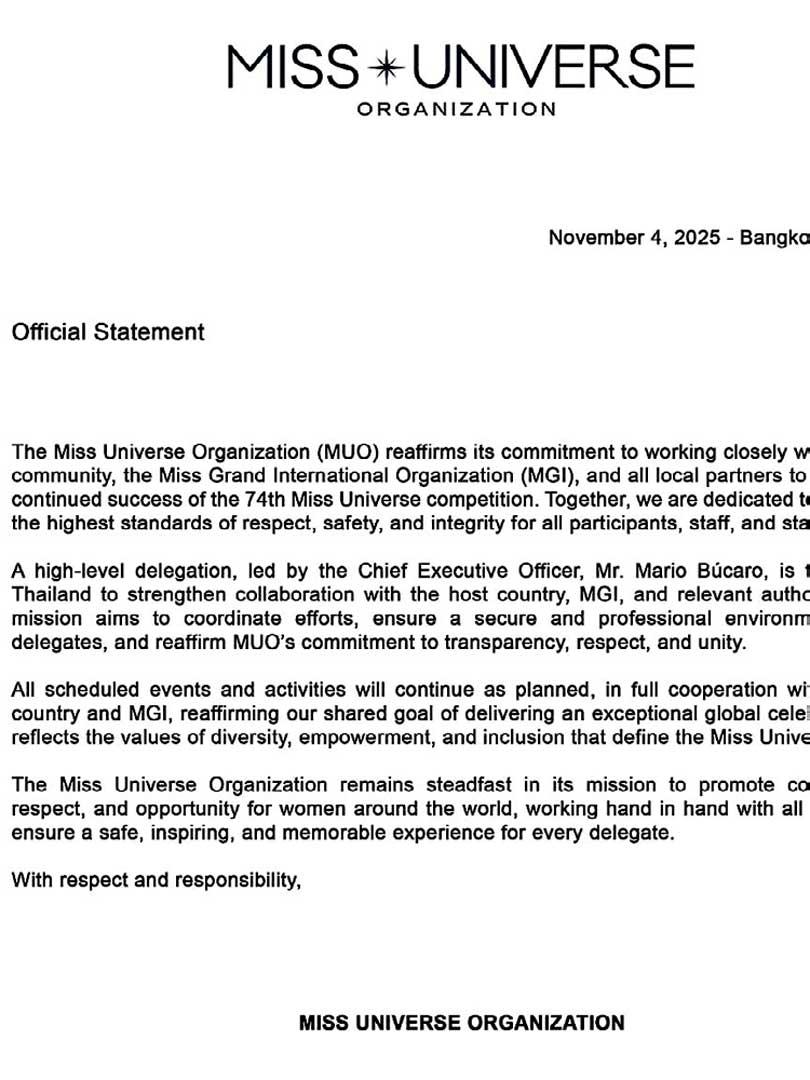

Fátima Bosch
Beauty pageants have long existed in the uneasy space between grace and control, where empowerment is celebrated onstage but often muted behind it. For decades, contestants have mastered the delicate choreography of confidence and compliance, smiling through silence in glittering rooms built on poise. Last week, in a ballroom in Bangkok, that choreography fell apart.
The Miss Universe 2025 festivities were meant to dazzle. The world’s most beautiful women had gathered beneath chandeliers for the annual sash ceremony, one of the first events leading up to the coronation. It was supposed to be routine: rehearsed smiles, polite introductions, another night in the choreography of grace.
Instead, it became a reckoning.
Midway through the event, the atmosphere shifted. Nawat Itsaragrisil, a Thai businessman and executive director within the Miss Universe Organization, stepped to the microphone. His task was to welcome contestants and outline the evening’s proceedings. Instead, he began with reprimand. Addressing the room of poised delegates, he questioned why some contestants had missed a scheduled social-media sponsorship shoot earlier that day. The livestream, broadcast via Miss Universe Thailand’s official Facebook page, caught every word.
“Mexico, where are you?” he demanded. The question sliced through the noise.
Miss Mexico, Melissa Fátima Flores Bosch, stood, elegant but visibly uneasy. “I heard you’re not going to support everything about Thailand,” Nawat continued, accusing her of refusing to follow directions from his team and listening instead to her national director.
“I didn’t give you the opportunity to talk,” he said when Bosch tried to explain.
The tone was sharp, less inquiry than humiliation. Contestants looked down. The room went still. Bosch, standing before the cameras and dozens of peers, was being scolded like a child. After several tense minutes, Nawat’s words turned cutting. “Dummy,” he said, dismissing her in front of the global audience.
That single insult cracked the room open. Bosch’s composure did not waver. Her voice, quiet but steady, carried across the hall. “I have a voice,” she said. “You are not respecting me as a woman.” It was not shouted. It did not need to be. The statement, simple and devastating, hung in the air like a truth long waiting to be spoken aloud. The confrontation lasted just four minutes, but it revealed years of unspoken imbalance between glamour and control. The pageant, so often framed as a stage for empowerment, had instead displayed its fragility.
When Bosch refused to sit down, Nawat called for security. “Take her out,” he said, motioning toward the contestant who stood unflinching in her sash and gown. The moment Bosch was escorted away, the silence was deafening. Then, breaking through it, one woman stood.
Victoria Kjær Theilvig, the reigning Miss Universe 2024 and the first Dane ever to hold the crown, rose calmly from her seat. She didn’t raise her voice. She didn’t make a scene. She simply gathered her coat and said, “This is about women’s rights. To humiliate another girl in front of everyone is beyond disrespectful. I’m sorry, but I can’t stay.”
One by one, others followed, women from around the world united not by choreography but by conscience. Over a dozen contestants left the ballroom that night, their quiet defiance echoing louder than any anthem of empowerment the pageant had ever staged. Nawat, still holding the microphone, issued what sounded like a threat. “Sit down. If anyone wants to continue the contest, sit down.”
But the tide had already turned.
Footage of the incident spread across social media within hours. Clips from the livestream circulated on TikTok, X, and Instagram, each replayed with disbelief. Fans and former contestants condemned the behavior. “If that’s what he says in public, imagine what’s said behind closed doors,” wrote former Miss Grand International Rachel Gupta. Bosch, speaking later to reporters, confirmed that she had been called “stupid” during the exchange. Her words afterward were heartbreakingly measured. “It’s not respectful,” she said. “I don’t bother anyone. I try to be kind. I’m doing my best.”
Her composure, so long demanded of women in this industry, became its own quiet act of defiance. She didn’t rage. She didn’t cry. She simply told the truth.
The world noticed.
Under mounting pressure, Nawat Itsaragrisil appeared on a livestream days later to issue an apology. His tone was smooth, his phrasing cautious. He expressed regret “if anyone felt uncomfortable” and insisted that he had already apologized privately. To many, it sounded less like accountability and more like damage control.
Miss Universe President Raúl Rocha Cantú later issued a formal statement condemning the incident. “Mr. Nawat humiliated, insulted, and showed a lack of respect, in addition to the serious abuse of having called security to intimidate a defenseless woman,” Cantú said. He announced that newly appointed CEO Mario Búcaro would be sent to Thailand to oversee the remaining pageant events, while Nawat’s role would be limited for the rest of the competition.
But for many viewers, the apology came too late. The spectacle of women walking out, choosing dignity over decorum, had already redrawn the narrative. The backlash was swift and fierce. Hashtags calling for Nawat’s removal trended across platforms: #NoMoreNawat, #RespectWomen, #MissUniverseWalkout. Fans demanded that Bosch receive a public apology and questioned how such behavior could occur under an organization that brands itself as a global advocate for women’s empowerment.
“NO MORE NAWAT. He needs to be OUT. This is the moment to protect our pageant,” one Instagram user wrote. Others echoed the sentiment: “We watched the humiliation live. We won’t forget it.”
Inside the organization, there was visible damage control. Staff scrambled to reassure sponsors, contestants, and audiences that Miss Universe’s “core values of respect and dignity” remained intact. But the moment had already peeled back the pageant’s carefully crafted surface, revealing something rawer beneath.
For all its glitz and rehearsed rhetoric, Miss Universe has long mirrored the contradictions of the culture that consumes it. It asks women to embody strength, so long as that strength is beautiful, marketable, and compliant. It preaches empowerment while policing behavior.
The Bangkok walkout stripped that illusion bare. What the cameras captured wasn’t scandal; it was awakening. When Victoria Theilvig rose and walked out, she was stepping out of a system that had always demanded obedience dressed as grace.
In that single act, she reframed what empowerment looks like in 2025. It wasn’t a speech. It wasn’t a slogan. It was the decision to stand up when others are told to sit down.
The Miss Universe crown has always symbolized perfection, poise, diplomacy, and the ability to inspire without offending. But in Bangkok, that symbol wavered. The contestants who walked out were reclaiming its meaning.
In the end, that may be the moment the world remembers most: not the glitter, not the gowns, but the silence that followed when a woman said, with her actions, that enough was enough.
She said, “I have a voice.” And the pageant never looked the same.




